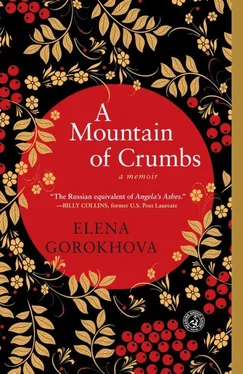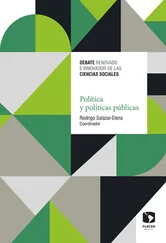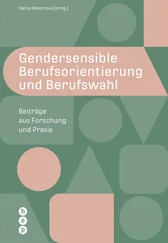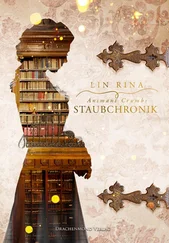He gives Marina the name and the telephone number, oblivious of my mother’s ominous teacup clinking and tensed back as she roots in the cupboard for a jar with strawberry jam. My mother has brought the good dishes from the other room, the set with rosebuds and a golden stripe that makes its appearance on the table only when we have guests, and we drink tea with slices of bread loaded with butter and jam while Ivan Sergeevich explains the steps in the breeding process. When we finish, he carefully sweeps breadcrumbs off the oilcloth into his palm and offers it to Major, who all this time has been waiting for a handout under the table. Then we all crowd into the hallway, and as Ivan Sergeevich reaches for his hat, my mother pulls him back into the kitchen and shuts the door.
My sister and I stand under the coat hooks, hiding in the folds of wool and crinkly raincoats, unable to hear anything but the hum of voices. I try to breathe very quietly in order not to test Marina’s patience. She wouldn’t normally let me share such a moment with her, but now, intent on unbraiding the strands of two voices behind the kitchen door, she tolerates my presence.
When the door finally opens, we skitter into Marina’s room and peek through a crack between the hinges. Ivan Sergeevich, looking uneasy, aims a little smile toward my mother, who unbolts the front door with aggressive efficiency.
The next day Marina calls the number, and the actress gives her a date for a reading. My sister’s face burns with the same feverish energy I see in my friend Genka’s face when he comes up with another plan to outsmart Aunt Polya.
“This is nothing but childish blabber,” says my father at supper, smoking the last of today’s pack of Belomors, annoyed at the noise my mother makes rattling the silverware in the sink. His head hurts, he says, because Uncle Volodya, his chauffeur, couldn’t fix his twelve-year-old Pobeda today, and he had to take a bus and hang out of its doors with other commuters like a bunch of grapes. He stubs out the cigarette and gets up. “This actress, whoever she is, will yawn through a couple of poems and send her home.”
I’m glad Marina cannot hear this since she is with her school drama club tonight.
“Maybe it’s all for the best,” sighs my mother, as she picks up a rag and starts drying the dishes. “Maybe she needs to be told by an actress that a theatrical career is out of the question. Like my mamochka always says, everything that happens, happens for the best.” A diminutive mamochka, which she uses instead of mama, sounds strange to me since I can’t imagine my wide, ancient grandma as anything miniature or slight. My grandma’s philosophy sounds strange, too: if everything happened for the best, why are there so many things around that aren’t so good?
All week I hear Marina practicing in her room, reciting and singing. Loudly and with inspiration she reads Lermontov’s “Sailboat” and Paustovsky’s “Basket with Pinecones.” Leaning on her door, I try to memorize the lines so I can repeat them later for my friend Genka in the same tragic and melancholy voice, a voice destined for somber theater audiences wrapped in velvet and furs.
After the audition, my mother receives a phone call. She tells my father about it while Marina is sent out to the bakery, but this time the kitchen door is open a crack, and hiding in the tangle of coats, I hear every word. The actress called her at work, at the faculty room of the anatomy department since we don’t have a phone at home. For about five minutes, under the gaze of a bored pathology professor, my mother heard about Marina’s outstanding talent. You must understand, the actress said, that she has a gift for acting. You must allow her to go to drama school.
My mother reports that she felt angry to hear the judgment that instantly shattered the family’s plans and legitimized, to an extent, such an unworthy profession as acting. But at the same time she can’t deny she felt something that resembled pride. For a minute, while the actress went on praising Marina’s innate gift, the anger and the pride bumped against each other, with pride unexpectedly taking the upper hand. My mother said “Thank you” and hung up.
When Marina returns home with a loaf of bread, she goes directly to the kitchen and starts setting the table. She doesn’t usually set the table unless she is told, but she knows the actress is going to call mother any day now, so she is being preemptively helpful and sweet.
My mother watches her move across the scuffed linoleum, swing open the cupboard doors, and take out four plates.
“Elena Vladimirovna telephoned me today,” she says, calling the actress by her name and patronymic, the only way an adult can be addressed in the presence of a child. “You’re going to Moscow,” she says. Marina’s hand stops in midair and drops a fork on the floor. My sister has a stupid expression on her face, a look you should never show, a look I would never let Aunt Polya see—half confusion, half fear. Maybe she thinks she’s being punished for having publicly revealed her ambition to be an actress. Maybe she thinks she did so badly at the audition that the actress has recommended that she be banished from Leningrad altogether.
“To Moscow?” she stammers out.
“Yes, to Moscow,” my mother says impatiently, not wanting to repeat the words she wasn’t happy to say in the first place. “Elena Vladimirovna said you should go to the best school there is, and Leningrad drama school is not that good.”
MY GRANDPARENTS COME TO visit every summer. From June to September they stay in our dacha thirty kilometers from Leningrad, a little house squatting on a half-acre of land behind a wood fence. It was my mother who initiated buying the dacha soon after I was born, despite my father’s uncertainty about added responsibilities. I’m already eight, and I can conjure up how it happened. The baby needs fresh air, she would have declared in her teaching voice, the same voice that tells me I must finish every crumb on my plate.
My father probably hesitated, since no one wants to do right away what the teaching voice tells you. But his deepest passion was fishing, and the dacha stood a mere four kilometers from the Gulf of Finland, where you could catch pike and perch and sometimes even eel. In a rowboat, he felt at peace, enjoying the solitude infinitely more than he enjoyed the catch.
Now the boards of the dacha have been bleached to gray by years of snow and rain, with only several leftover patches of the original green paint scattered over the wood. A porch, sinking to the left, leads to an enclosed veranda with a table and two long benches in the center. The rest of the house is always dark, since the two small windows sifting light into our tiny bedroom and kitchen are shaded by branches of a sprawling lilac bush. When I enter, my eyes need a few seconds to adjust to the twilight, to make out the contours of a fat, wood-burning stove propping the low ceiling.
Another stove, this one flat-topped to accommodate pots and pans, dominates the kitchen. Its cast-iron body seems to grow out of the floorboards, rooted somewhere in the depths of the earth below the foundation. A metal sink—connected to nothing since there is no plumbing—hangs underneath a washing device, a pot with a hole in the middle plugged with a metal stem. When I jiggle the stem up and down, water trickles onto my hands and, through a hole in the washbasin, falls into a pail underneath. The sink makes you think the washing device is really a faucet that drips water into a pipe instead of a stinky pail—another example of vranyo, which Aunt Polya taught me in nursery school.
Dedushka, my grandfather, loves gardening. Tall and white-haired, his body thick as an oak tree, he turned a half-acre of waist-tall grass into a showcase of neat beds of strawberries, cucumbers, and dill. He planted apple trees, whose branches now bend under the weight of apples, and bushes of gooseberries, their sour fruit covered with soft white fur. In the back, he built a tomato hothouse, a sheet of plastic perched on a wooden frame and held down by bricks.
Читать дальше












